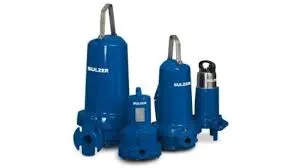Belarusian
- Afrikaans
- Albanian
- Amharic
- Arabic
- Armenian
- Azerbaijani
- Basque
- Belarusian
- Bengali
- Bosnian
- Bulgarian
- Catalan
- Cebuano
- Corsican
- Croatian
- Czech
- Danish
- Dutch
- English
- Esperanto
- Estonian
- Finnish
- French
- Frisian
- Galician
- Georgian
- German
- Greek
- Gujarati
- Haitian Creole
- hausa
- hawaiian
- Hebrew
- Hindi
- Miao
- Hungarian
- Icelandic
- igbo
- Indonesian
- irish
- Italian
- Japanese
- Javanese
- Kannada
- kazakh
- Khmer
- Rwandese
- Korean
- Kurdish
- Kyrgyz
- Lao
- Latin
- Latvian
- Lithuanian
- Luxembourgish
- Macedonian
- Malgashi
- Malay
- Malayalam
- Maltese
- Maori
- Marathi
- Mongolian
- Myanmar
- Nepali
- Norwegian
- Norwegian
- Occitan
- Pashto
- Persian
- Polish
- Portuguese
- Punjabi
- Romanian
- Russian
- Samoan
- Scottish Gaelic
- Serbian
- Sesotho
- Shona
- Sindhi
- Sinhala
- Slovak
- Slovenian
- Somali
- Spanish
- Sundanese
- Swahili
- Swedish
- Tagalog
- Tajik
- Tamil
- Tatar
- Telugu
- Thai
- Turkish
- Turkmen
- Ukrainian
- Urdu
- Uighur
- Uzbek
- Vietnamese
- Welsh
- Bantu
- Yiddish
- Yoruba
- Zulu
Telephone: +86 13120555503
Email: frank@cypump.com
снеж . 16, 2024 08:22 Back to list
stainless steel submersible sewage pump
The Advantages and Applications of Stainless Steel Submersible Sewage Pumps
In the realm of modern wastewater management, stainless steel submersible sewage pumps have emerged as a vital component. Their design and functionality cater to a wide range of applications, ensuring efficiency, durability, and reliability. This article delves into the benefits of these pumps and their important usages, highlighting why they are preferred in various industries.
Understanding Stainless Steel Submersible Sewage Pumps
Stainless steel submersible sewage pumps are specifically designed to be submerged under water, enabling them to handle the transportation of wastewater and sewage from lower to higher ground. Unlike traditional pumps that operate above ground, submersible pumps are placed directly into the sewage, making them ideal for a variety of pumping tasks. The use of stainless steel in their construction enhances their durability and resistance to corrosion, making them suitable for harsh environments.
Advantages of Stainless Steel Construction
1. Corrosion Resistance One of the most significant advantages of stainless steel pumps is their resistance to corrosion. Unlike cast iron or plastic pumps, stainless steel can withstand aggressive fluids, chemicals, and temperature variations, ensuring a longer lifespan.
2. Strength and Durability Stainless steel is renowned for its strength. Pumps made from this material are capable of handling heavy-duty applications without the risk of cracking or breaking. This robustness is crucial in environments where pumps encounter abrasive solids and heavy shear.
3. Hygienic Properties In applications involving wastewater, hygiene is paramount. Stainless steel’s non-porous surface minimizes the growth of bacteria and other pathogens, making it an excellent choice for sewage applications.
4. Energy Efficiency Stainless steel submersible sewage pumps are designed to be efficient, reducing energy consumption and operating costs. Advanced motor technology and hydraulic designs ensure effective pumping at lower electricity loads.
stainless steel submersible sewage pump

5. Versatility These pumps can handle a wide variety of fluids, including those with solids, liquids, and slurries. Their versatility makes them suitable for various settings, including residential, commercial, and industrial applications.
Applications of Stainless Steel Submersible Sewage Pumps
1. Wastewater Treatment Plants Sewage pumps play a critical role in the efficient operation of wastewater treatment facilities. They are employed to transport sewage to treatment systems, ensuring that the process runs smoothly and effectively.
2. Industrial Applications In industries, these pumps are used to transfer wastewater from manufacturing processes. Their ability to handle solids and aggressive chemicals makes them ideal for factories, refineries, and other industrial operations.
3. Construction Sites During construction, managing groundwater and sewage is essential. Submersible sewage pumps are used to manage dewatering needs, thus preventing flooding and ensuring safe site conditions.
4. Residential Uses In homes, these pumps can be installed in basements or crawl spaces to handle sewage systems or wastewater pits, providing a reliable solution for areas that are below the main sewer lines.
5. Municipal Systems Municipalities deploy submersible pumps in their sewage systems to ensure effective waste management. They are crucial in maintaining public health by efficiently evacuating sewage from urban areas.
Conclusion
Stainless steel submersible sewage pumps are a cornerstone in wastewater management, combining durability, efficiency, and versatility. Their ability to withstand harsh conditions while providing reliable service makes them an essential tool across various sectors. Whether in industrial applications, wastewater treatment plants, or residential settings, these pumps demonstrate outstanding performance and longevity, addressing the critical need for effective sewage management in today's world. As technology continues to advance, the development of even more efficient and environmentally-friendly pumps can be expected, reinforcing the importance of these vital systems in modern infrastructure.
-
ISG Series Vertical Pipeline Pump - Chi Yuan Pumps Co., LTD.|High Efficiency, Energy Saving, Low Noise
NewsJul.30,2025
-
ISG Series Vertical Pipeline Pump- Chi Yuan Pumps|High Efficiency&Low Noise
NewsJul.30,2025
-
ISG Series Vertical Pipeline Pump-Chi Yuan Pumps Co., LTD.|High Efficiency&Energy Conservation
NewsJul.30,2025
-
ISG Series Vertical Pipeline Pump - Chi Yuan Pumps Co., LTD.|Advanced Hydraulic Design&Energy-Efficient Solutions
NewsJul.30,2025
-
ISG Series Vertical Pipeline Pump - Chi Yuan Pumps Co., LTD.
NewsJul.30,2025
-
ISG Series Vertical Pipeline Pump - Chi Yuan Pumps Co., LTD.|energy-efficient fluid handling&industrial durability
NewsJul.30,2025










